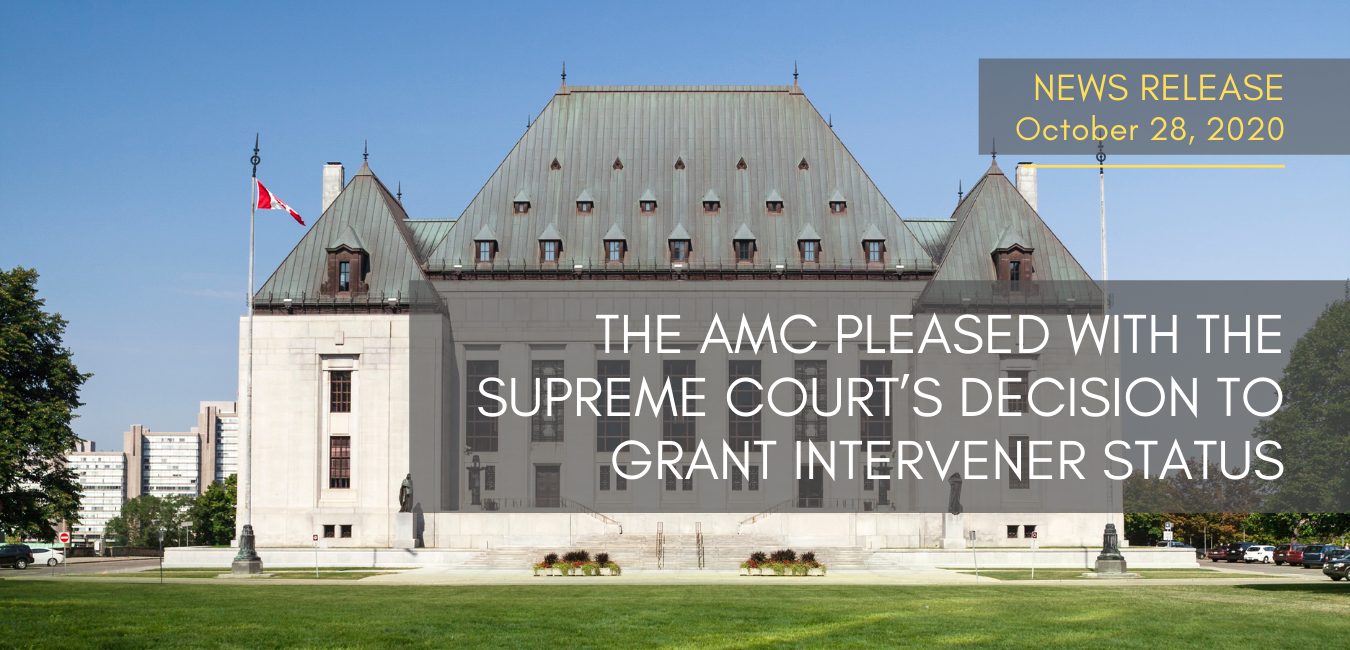The AMC pleased with the Supreme Court’s decision to grant intervener status

October 28, 2020
Treaty One Territory, Manitoba
alexpapineau
Treaty One Territory, Manitoba – The Assembly of Manitoba Chiefs (AMC) is pleased with the Supreme Court of Canada’s decision to grant intervener status to AMC, along with many others, in what is referred to as the Southwind case.
Southwind concerns a case brought forward by the Lac Seul Band against the Federal Government for breaching their fiduciary duty when they flooded reserve land to advance a hydro-electric project. This project would see massive profits for the government, while leaving the First Nation of Lac Seul destitute and without reparations or adequate compensation for the devastation of their land and lost opportunity.
This case was heard at the Federal Court of Appeal, which found in favour of Lac Seul and ordered compensation for the First Nation. Lac Seul, however, subsequently appealed the decision stating that the compensation amount should have been calculated based on both significant cultural loss and on the use of the flooded land for hydro profits, meaning that the ordered amount did not accurately reflect the loss suffered.
“The Federal Government owes all First Nations a fiduciary duty which is a long standing obligation to act in the best interests of First Nations. Clearly, profiting on the backs of First Nations to their detriment is not honouring the fiduciary obligation and Lac Seul should be compensated to fullest extent considering any and all losses suffered by the Nation,” said AMC Grand Chief Arlen Dumas.
“To this end, AMC will provide a factum as a written submission, supporting our Nations and reiterating the Federal Government’s obligations to Lac Seul and all First Nations. AMC will stand with nineteen (19) other interveners on this matter and will continue to stand with all First Nations to hold the Federal Government to account on their obligations to First Nations.”
Grand Chief Dumas concluded, “This appeal marks a significant opportunity for Supreme Court to provide clarity on how, in light of the unique Crown-First Nations relationship, equitable compensation can best be assessed when the Federal Government has breached its treaty obligations or fiduciary duty to a First Nation.”